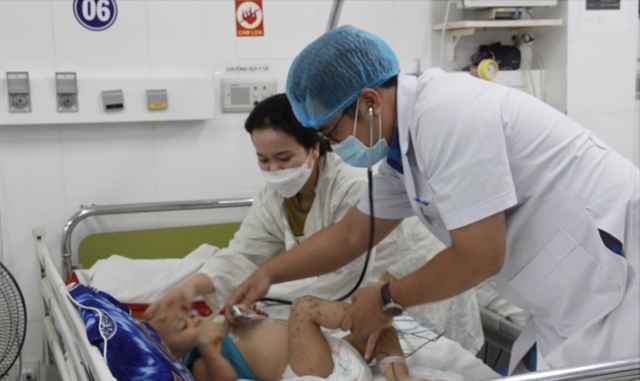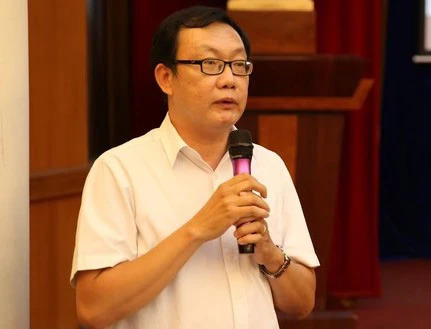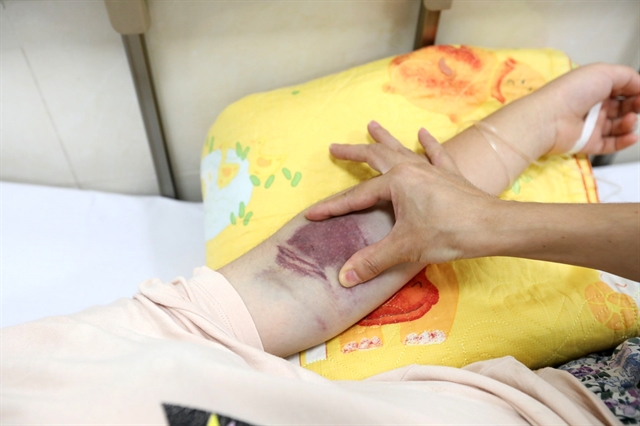 Society
Society

 |
| Lương Chấn Quang, head of the Disease Prevention and Control Department under the HCM City Pasteur Institute. — Photo sggp.org.vn |
Lương Chấn Quang, head of the Disease Prevention and Control Department under the HCM City Pasteur Institute, speaks to Sài Gòn Giải Phóng (Liberated Sài Gòn) about the Qdenga Vaccine, the first dengue fever vaccine licensed in Việt Nam.
Could you provide more details about the recently licensed dengue fever vaccine in Việt Nam?
The Qdenga vaccine's certification for domestic distribution on May 15 is significant because it gives people access to the shot and helps the country avoid a deadly disease found all over the world.
Simultaneously, we possess another efficient remedy to bolster the prevention of dengue outbreak.
The World Health Organization (WHO) states that the vaccine is 80 per cent effective in preventing dengue caused by any serotype one year after vaccination, and then steadily declines to 61 per cent after 57 months.
Effectiveness in preventing hospitalisation is 90 per cent (18 months post-injection) and remains high at 84 per cent within 57 months after the injection.
 |
| A severe dengue fever case treated at the Việt Nam-Cuba Friendship Hospital in Hà Nội during the rainy season last year. — VNA/VNS Photo Minh Quyết |
Is it feasible to create a turning point in dengue prevention in Việt Nam?
Having a vaccine means adding the fastest and most effective intervention tool to help authorities and the health sector control the epidemic and prevent outbreaks. However, the vaccine has just begun to be circulated, so the coverage rate is not as widespread as expected.
In the meantime, dengue-transmitting mosquitoes thrive in our nation's natural environment. Qdenga Vaccine should only be viewed as a supplemental dengue control measure at this time, not as a replacement.
Furthermore, the WHO advises that in order to maximise the efficacy of dengue preventative vaccinations, countries should continue to combine them with existing vector control efforts.
Despite having licences to deploy the vaccine, nations in the region including Thailand and Indonesia nevertheless employ comprehensive and integrated approaches to prevent the disease. In other words, we still have to continue to kill larvae and mosquitoes.
We would like to emphasise that controlling the dengue epidemic situation requires an integrated strategy, effective implementation and synchronisation of many solutions, not just relying on vaccines alone. Every solution has a significant part to play in preventing an outbreak.
What has been the biggest obstacle to dengue prevention in Việt Nam during the past several years, particularly in the southern region?
A single staff member is typically in charge of both dengue prevention and other infectious disease prevention programmes at clinics in Việt Nam, which can result in work overload, particularly during the rainy season when dengue cases are on the rise.
The absence of social and communal sharing in efforts to avert the epidemic is another challenge. Activities for preventing dengue have been a part of the national target programme for 25 years.
The health sector has remained true to its goal. Nonetheless, some ministries and organisations continue to believe that the health sector is the only one responsible for managing dengue vectors.
Locations where humans live, work and study are where larval nests originate. Success or failure in averting a dengue outbreak depends on collaboration between the community and individual citizens. — VNS




